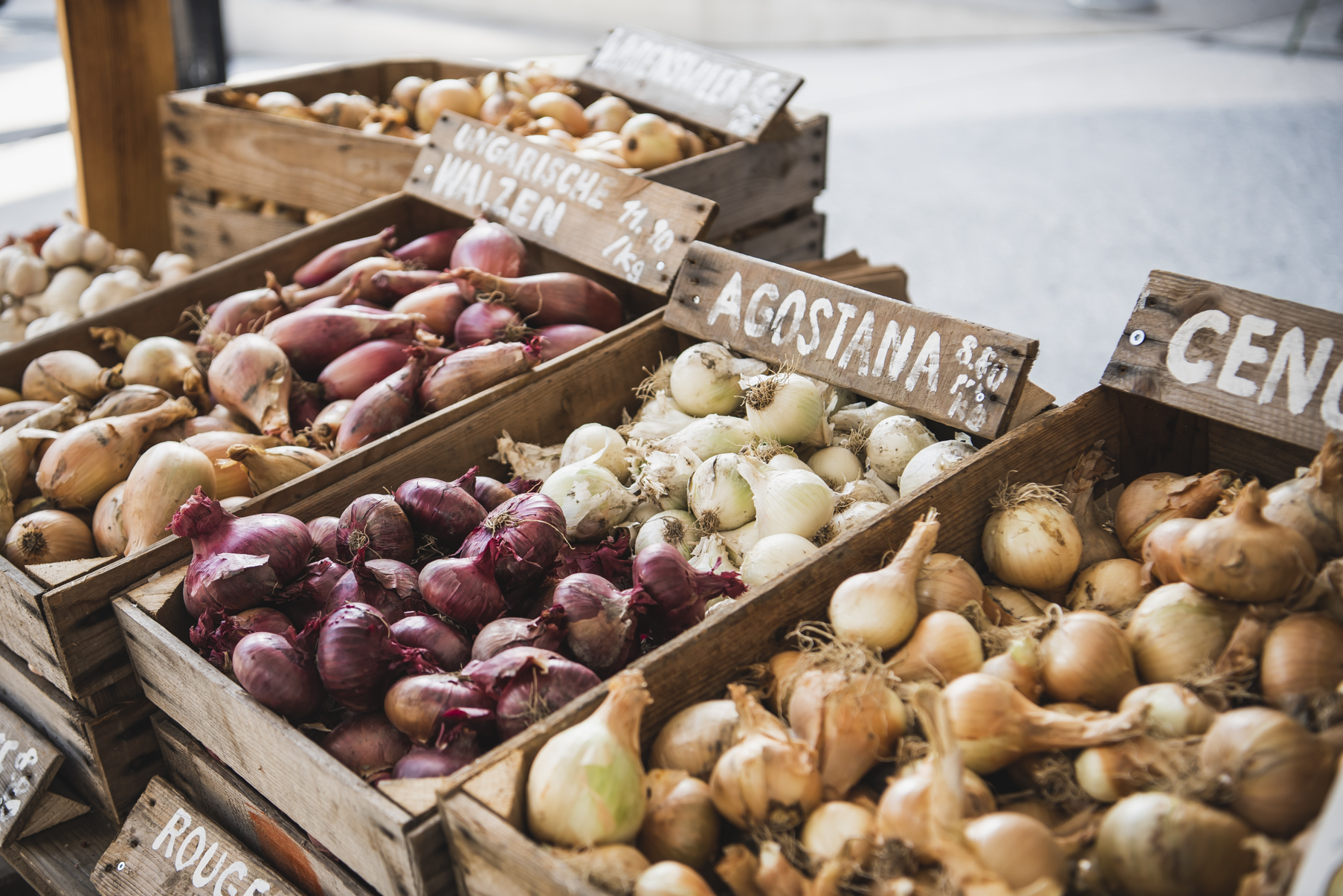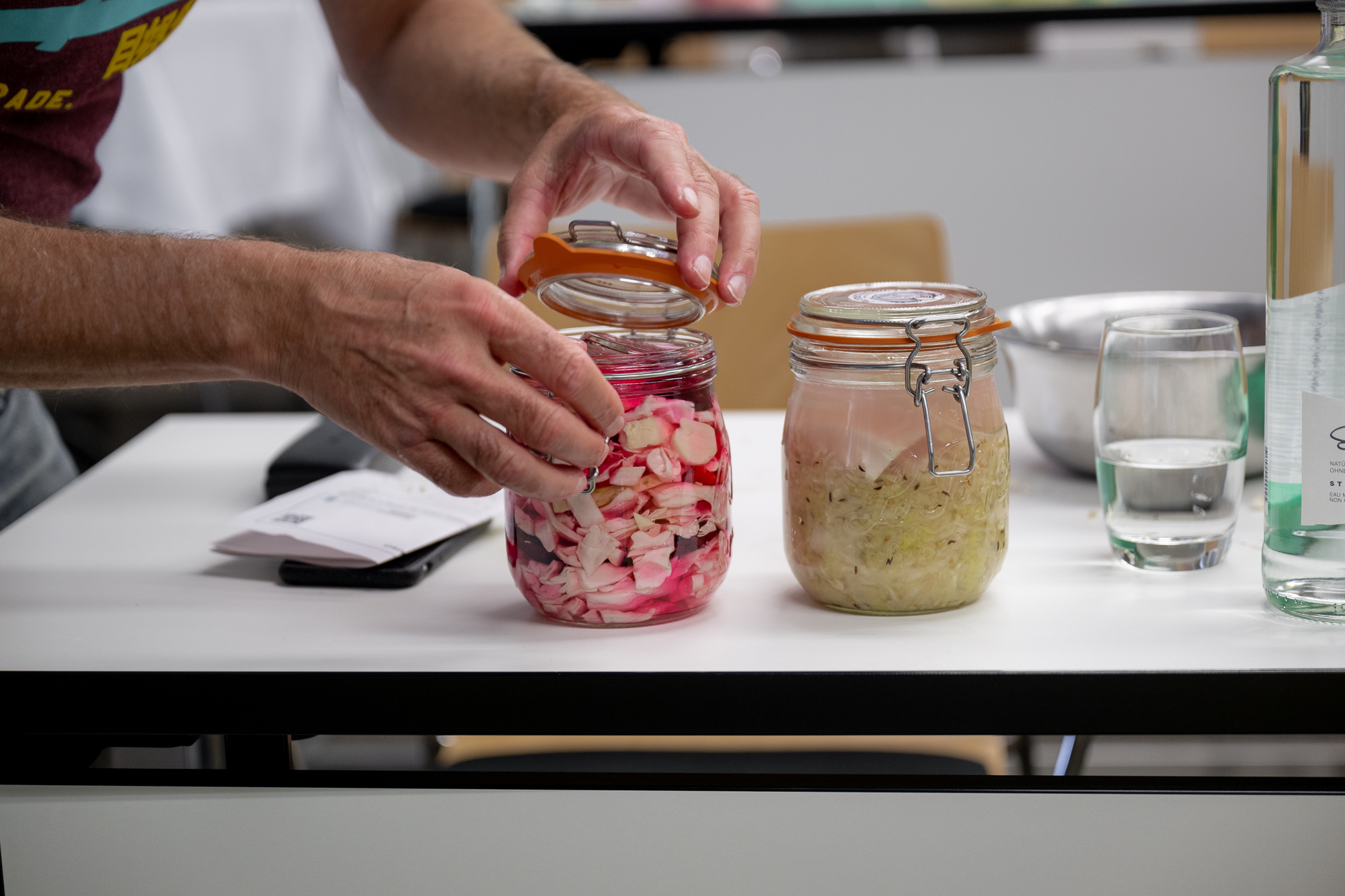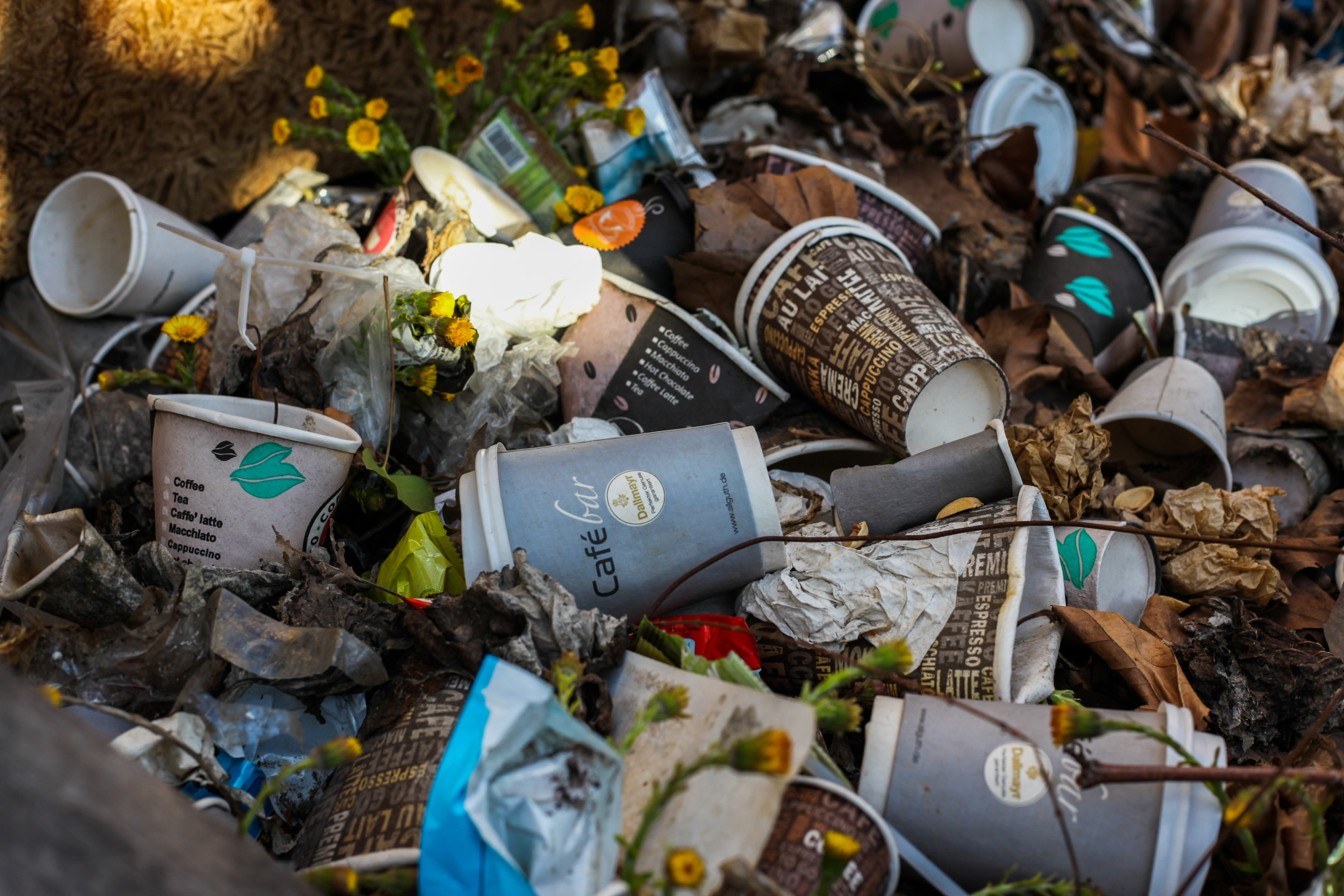Sustainable nutrition becomes mainstream
Science proves it: Food systems are responsible for one-third of mankind's CO2 emissions. We can contribute in our everyday-life towards reducing this and, in doing so, ease our conscience and promote our health.
A varied diet, not overabundant in meat, is ideal for the human body. And this variety is at its peak in early summer, when young succulent vegetables and crisp lettuce heads sweet-talk us into creating delicious dishes. During the cold months, however, things look quite different: This is predominantly cole crop and root veg season.
But, with a little good will, these too can be used to conjure up countless tasty meals – the Internet is full of tips on how. And a seasonal diet of produce sourced as regionally as possible with minimum food waste is your key to contributing to a food system that produces less CO2: 330kg of food per person per year goes unused.
Which is why shopping at your local weekly market is the best way to eat a more climate-friendly diet (and yes, we know that the individual cannot solve the problem until the problem of the system is solved).
Follow these three short tips for buying and preparing food to reach a new level of sustainability:
Weekly market and unpacked
Buy regionally produced, seasonally available vegetables at your local weekly market and take your own packaging with you. Here's a nice seasonal calendar. You may be reassured to know that there's only about ten weeks from today to go before the first leaves of wild garlic start shooting out of the ground. For ideas and recipes you can, for example, visit this website – here you will find recipes compiled by dedicated restaurateurs as part of the City of Zurich's "Klima à la Carte" campaign.

Avoid food waste
It can only be preached again and again: Best-before dates are not best-before dates, but recommendations by the industry. Neither yoghurt, nor butter, nor even minced meat goes bad or turns toxic from one day to the next. Train your nose on fresh produce and you will recognize by the smell if something is no longer good. The only exception is seafood – this should always be eaten as fresh as possible. You will find products that are past their best-before date but perfectly edible offered on sites like Too good to go and other similar platforms – so, in a double whammy, you can save money and lessen the burden on the environment by preventing food waste. Another idea to avoid food waste is fermentation. Vegetables can be preserved by fermentation.

Use a reusable cup
Your coffee to go in a paper cup plus plastic spoon – that's a real climate killer due to widespread use in cities around the globe. All disposable products should have been banned long ago, but the political will is lacking. Please refrain from using them whenever and wherever possible.

If you follow these three simple rules of conduct, you will be doing the best you can as an individual for sustainability. Anything beyond this can only be achieved politically and systematically, otherwise we will only ruin our enjoyment of life and food. And as somebody once said in the innocent eighties: Those who don't enjoy are not enjoyable!

